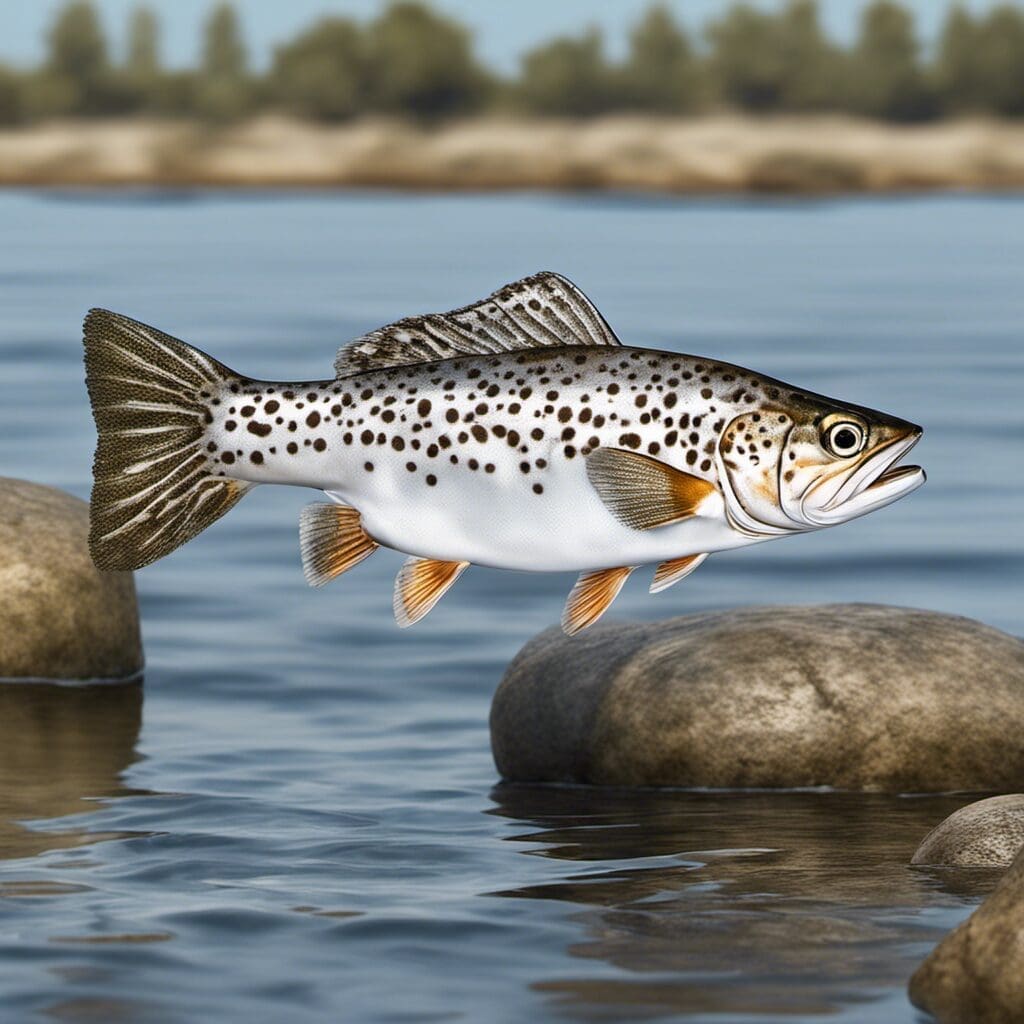Introduction
The Spotted Seatrout, also known as the Speckled Trout, is a famous game fish from the Sciaenidae family.
Conservation Status
Although not formally listed as endangered or threatened, the Spotted Seatrout populations can locally suffer due to overfishing and habitat loss. Conservation efforts include maintaining healthy seagrass beds, controlling fishing pressure, and breeding programs.
Statistics
The statistics regarding the Spotted Seatrout are as follows:
| Statistic | Average | Range |
|---|---|---|
| Length | 19 inches | 12 – 30 inches |
| Weight | 2.5 pounds | 1 – 17 pounds |
| Average Lifespan | 12 years |
Distribution
Spotted Seatrout are mostly found in the western Atlantic Ocean from the northeast of Mexico to the Chesapeake Bay. They do not typically undergo extensive migrations, but may move to deeper waters in winter.
Habitats
The Spotted Seatrout prefers brackish waters and tends to stay in inshore waters, over sandy bottoms or in seagrass beds. They can typically be found in a depth range from 5 to 15 feet and in temperatures ranging from 50 °F to 85 °F.
When and Where to See
Depending on the region, Spotted Seatrout can be seen in warmer months and are more active during early morning or late evening hours.
Best Fishing Locations
Spotted Seatrout are highly localized and specific locations can greatly improve your chances. Some notable hotspots include:
- Florida’s Indian River Lagoon
- Galveston Bay, Texas
- Chesapeake Bay, Virginia
- Mobile Bay, Alabama
- Mosquito Lagoon, Florida
- Charleston, South Carolina
- Louisiana Marshes
- South Padre Island, Texas
- Mississippi Sound, Mississippi
- Jupiter Inlet, Florida
They are often seen in tidal channels, over seagrass beds or along oyster bars.
How to Catch
Preferred bait for Spotted Seatrout includes shrimp and mullets. Techniques for catching include fly fishing, shallow water casting, and trolling. Night fishing under lights can also be productive during warmer months.
Identification Guide
Spotted Seatrout are silver with a bluish-grey back and numerous dark spots on their back, dorsal fin, and tail. They are slender, and their mouths contain two large canine-like teeth. They can be distinguished from similar species by an absence of a chin barbel and the presence of spots on the dorsal fins.
Culinary
Spotted Seatrout is a popular game fish, characterized by its light, mild flavor and low oil content. It’s commonly grilled, baked, or pan-seared. Nutritional Information per 3-ounce serving: 91 calories, 19g protein, 1g fat, and 57mg cholesterol.
Additional Information
Feeding mostly on shrimp, mullets, and other small fish, Spotted Seatrout tend to feed more actively during the dusk and dawn. They are also known for their unique, drumming sounds during spawning season, typically observed during warmer months. Predators include larger fish and birds of prey.
References and Further Reading
For those interested in exploring more about the Spotted Seatrout, the following sources provide comprehensive information:
- Texas Parks and Wildlife Department
- Florida Fish and Wildlife Conservation Commission
- US Seafood Watch

